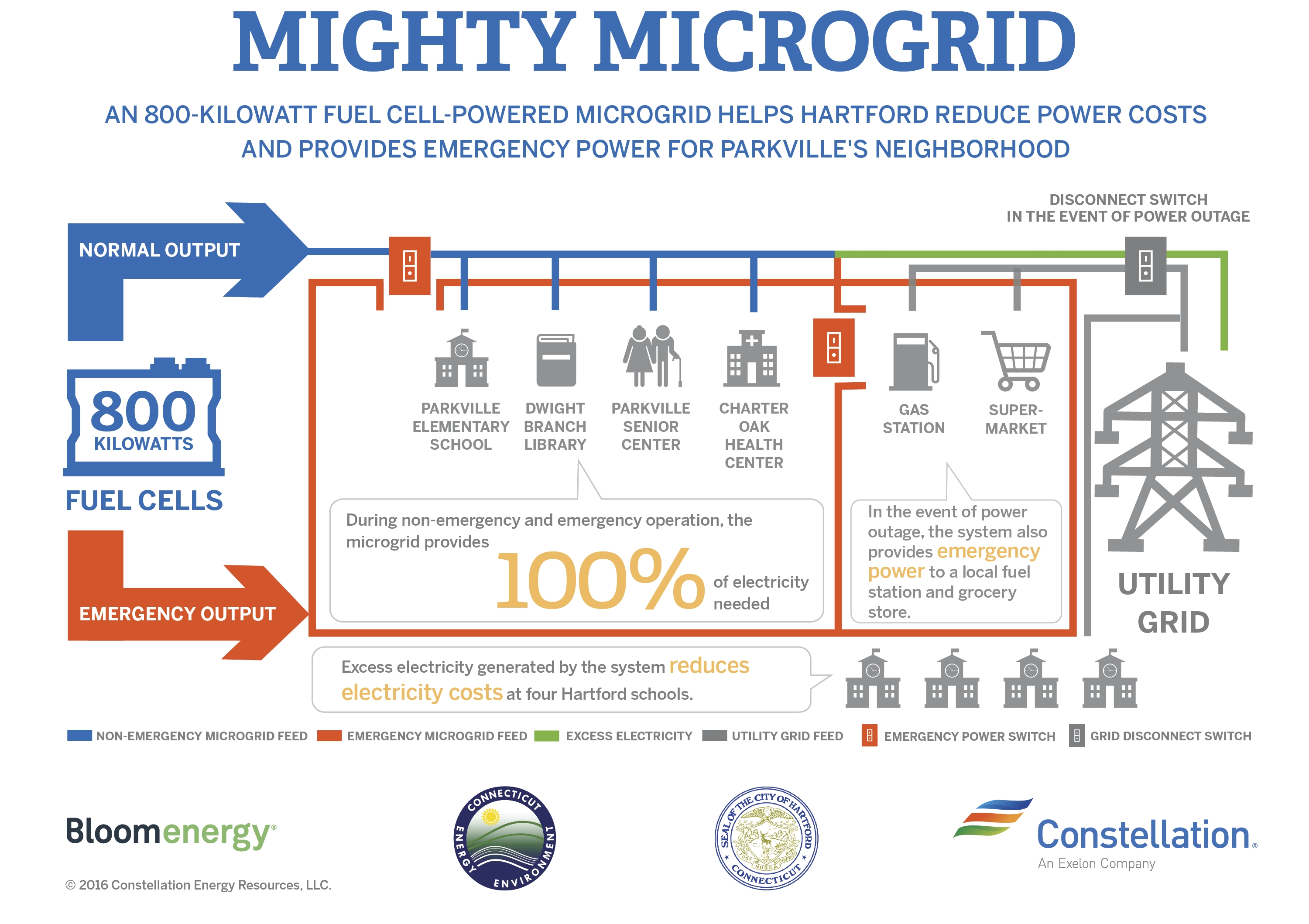
A fuel cell microgrid that will generate clean energy, manage electricity costs and supply emergency power for public buildings and businesses in Hartford’s Parkville neighborhood. (Graphic: Business Wire)
In Hartford, Connecticut, today, the City of Hartford, Constellation, and Bloom Energy announced the completion of a fuel cell microgrid in the city’s Parkville neighborhood. The project’s goals are to generate clean energy, reduce electricity costs and offer emergency backup power for businesses and public buildings. Mayor Luke Bronin, State Representative Lonnie Reed, Connecticut’s Department of Energy and Environmental Protection (DEEP) Commissioner Robert Klee, and representatives from Constellation and Bloom Energy attended a ribbon cutting ceremony today at Parkville Community School. The State of Connecticut classifies fuel cells as a source of renewable energy. (story continues below video)
The 800-kilowatt microgrid system generates 100% of the electricity for four facilities: the elementary school, library, senior center, and health center. If there’s an electrical grid outage, the microgrid will provide emergency power to these locations and a local gas station and grocery store residents can then use in case of an outage. Excess power generated by the system will reduce electricity costs at four local schools.
The project — Connecticut’s first developed through a public-private model— was the collective effort of stakeholders from city and state agencies, Parkville’s community, local utilities, and numerous engineering and construction firms.
The fuel cell microgrid is part of Connecticut’s Low-Emission Renewable Energy Credits Program, which offers long-term contracts for participants to sell the local utility qualified energy credits created from renewable projects. DEEP’s pioneering microgrid grant program helps prevent hardships to residents and businesses when severe storms occur.
“We are going to see more frequent and more extreme storms as a result of changes in our climate,” explains DEEP Commissioner Robert Klee. “Microgrid projects, such as this innovative installation in Hartford, will help maintain critical government services and amenities people need even if the power goes down.”
